Ethical dilemmas in lab management are more than theoretical exercises—they are real-world challenges that test a leader's judgment, values, and the operational integrity of their lab. Whether it involves data manipulation, authorship disputes, or conflicts of interest, how leaders respond can have a profound impact on team morale, regulatory compliance, and scientific credibility.
Let’s look at how two labs handled the same ethical challenges—with very different results.
Context: At Company 1, a junior technician accidentally miscalculated reagent concentrations, rendering a week’s worth of protein assay results unreliable. The data had already been included in a progress update sent to a funding agency.
Leadership response: Lab manager, Dr. A, was under pressure. The team was nearing a major grant renewal, and the PI feared the admission would jeopardize future funding. Dr. A decided not to disclose the issue immediately. Instead, they asked the technician to quietly repeat the experiments and replace the data before the next review.
Outcome: While the repeated assays did eventually produce valid results, the omission went unreported. Months later, during an external audit, inconsistencies surfaced, prompting a deeper investigation. The lab faced a temporary suspension of funding and mandatory compliance training.
Analysis: The leadership decision prioritized short-term optics over long-term integrity. Ethical dilemmas in lab management often demand uncomfortable transparency. Avoiding it led to institutional mistrust and reputational harm.
Context: A similar situation unfolded at Company 2. A graduate student, under time pressure, mislabeled a batch of tissue samples. This compromised a pre-clinical study nearing publication.
Leadership Response: Lab director, Dr. B, was notified the same day. After confirming the issue, they immediately informed both the journal and the study's co-investigators. Though the timeline was tight, they decided to pause submission and rerun the affected protocols. Dr. B used this event as an opportunity for training, leading a lab-wide meeting on error reporting and quality assurance.
Outcome: While the publication was delayed by two months, the lab maintained its credibility and received commendation from the journal for its ethical handling of the situation. Team trust in leadership grew significantly.
Analysis: This response embraced transparency and prioritized scientific integrity over publication speed. The ethical dilemma became an opportunity for strengthening lab culture.


Context: In both labs, collaborative research had been ramping up. At Company 1, a senior postdoc submitted a manuscript without listing a junior collaborator who had contributed to data analysis. At Company 2, a similar authorship decision came up for a technician who had designed a key component of an experiment.
Company 1 response: The issue was brought to Dr. A, who deferred to the postdoc’s explanation that the contribution wasn’t "intellectual" enough. The junior researcher, feeling undervalued, later left the lab.
Company 2 response: At Company 2, Dr. B applied an established authorship rubric and convened a short authorship committee that included rotating team members. They concluded the technician's contribution merited co-authorship. The technician was credited, boosting morale and inclusiveness.
Outcomes: Company 1 experienced internal disengagement and turnover, while Company 2 reinforced its collaborative environment through fairness and policy-driven clarity.
Analysis: Ethical dilemmas in lab management often stem from subjective interpretations. Pre-defined authorship guidelines and inclusive decision-making reduce bias and prevent conflict.
Context: Both labs faced pressure from a corporate partner eager for favorable data before launching a product.
Company 1 response: Dr. A shared the partner’s expectations with their team and expressed hope that the final data would reflect positively. While they did not explicitly instruct any manipulation, the team felt pressured. A senior scientist reanalyzed data selectively, excluding some negative outliers. The report was sent without internal peer review.
Company 2 response: At Company 2, Dr. B acknowledged the partner’s urgency but reiterated the lab’s commitment to objective reporting. They implemented a double-blind data review and invited an external consultant to review the statistics. The final report included all findings, including less favorable ones.
Outcomes: Company 1’s report was later challenged by an independent reviewer, delaying product approval. At Company 2, the partner expressed initial disappointment but appreciated the thoroughness and built a longer-term contract with the lab.
Analysis: Ethical dilemmas are rarely about overt misconduct—they often involve subtle cues and unspoken expectations. Clear boundaries and proactive validation mechanisms protect both scientific and business interests.
Ethical dilemmas in lab management don’t announce themselves in bold letters. They emerge through missed acknowledgments, quiet mistakes, and situational pressures. As these contrasting cases show, leadership responses—especially under stress—create ripples across lab culture, scientific integrity, and institutional reputation.
Ask yourself: How prepared is your lab to face ethical uncertainty? Do your team members feel safe reporting errors? Are your authorship criteria and data review protocols clear?
Handling ethical dilemmas well isn’t about perfection—it’s about principled consistency, transparency, and learning. The labs that thrive are those where leaders lead with both clarity and conscience.
Want to strengthen your leadership toolkit? Explore Lab Manager Academy for expert resources and training on ethical decision-making, lab culture, and operational resilience.



